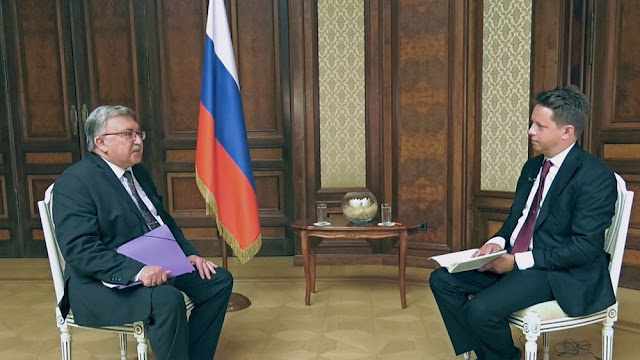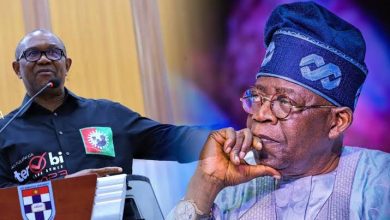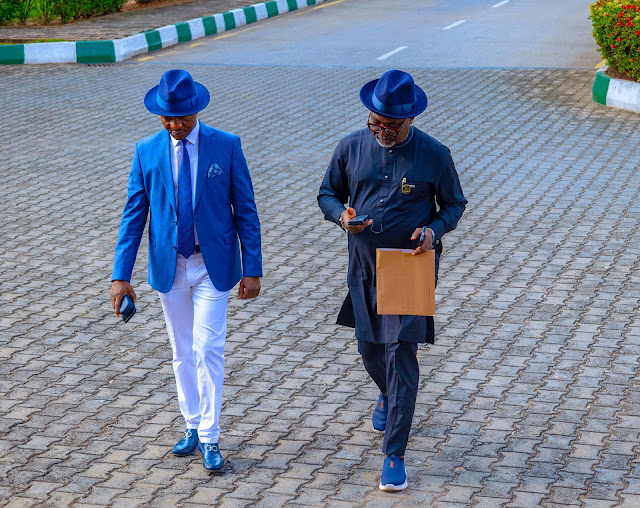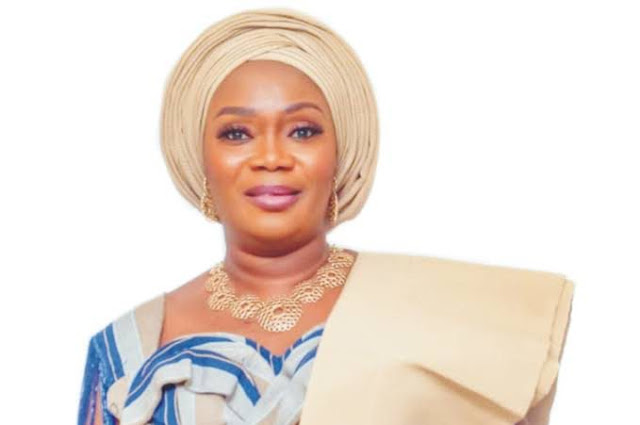In a sharply worded critique that underscores escalating tensions in international diplomacy, a senior Russian diplomat has vehemently opposed the recent decision by the European trio—Britain, France, and Germany, collectively known as the E3—to invoke the controversial “snapback” mechanism against Iran. This mechanism, embedded within the framework of the 2015 Joint Comprehensive Plan of Action (JCPOA), or Iran nuclear deal, allows for the swift reimposition of United Nations sanctions in response to perceived violations. Russia’s Permanent Representative to International Organizations in Vienna, Mikhail Ulyanov, labeled the move as not only “illegal” but also devoid of any “moral right,” attributing it to the E3’s own non-compliance with the accord and the United States’ earlier withdrawal from the agreement. This development, unfolding amid preparations for an upcoming meeting of the International Atomic Energy Agency’s (IAEA) Board of Governors, highlights the deepening politicization of global nuclear oversight and raises profound questions about the future of multilateral diplomacy.
Russia’s Permanent Representative to International Organizations in Vienna, Mikhail is seen during an exclusive interview with Press TV.
The statement from Ulyanov, delivered in an exclusive interview with Press TV on Sunday, September 7, 2025, comes at a critical juncture. As the world grapples with renewed geopolitical frictions, the activation of the snapback mechanism by the E3 in New York has disrupted ongoing technical discussions between the IAEA Secretariat and Iranian officials. These talks were reportedly progressing toward potential future cooperation on Iran’s nuclear program, only to be derailed by what Ulyanov described as an “irrational and inexplicable” intervention. This incident is emblematic of a broader pattern where political agendas appear to overshadow technical assessments, eroding trust in international institutions like the IAEA and the United Nations Security Council (UNSC).
To fully appreciate the gravity of this diplomatic clash, it is essential to delve into the historical and legal underpinnings of the JCPOA and the snapback provision. The JCPOA, signed in July 2015 after years of arduous negotiations involving Iran, the E3, the United States, Russia, China, the European Union, and Germany, aimed to curb Iran’s nuclear ambitions in exchange for sanctions relief. Endorsed by UNSC Resolution 2231, the deal imposed strict limits on Iran’s uranium enrichment, stockpiling of nuclear materials, and related activities, while allowing for international inspections to verify compliance. The snapback mechanism, outlined in the deal’s annexes, was designed as a rapid-response tool: if any party believed Iran was in significant non-compliance, it could notify the UNSC, triggering a 30-day window during which sanctions could be reinstated unless vetoed—a high bar given the political dynamics.
However, the accord’s fragility was exposed in May 2018 when then-U.S. President Donald Trump unilaterally withdrew from the JCPOA, citing its inadequacy in addressing Iran’s ballistic missile program and regional influence. The U.S. subsequently reimposed unilateral sanctions under a “maximum pressure” campaign, which severely impacted Iran’s economy, leading Tehran to gradually roll back its commitments starting in 2019. Subsequent U.S. administrations, including that of President Joe Biden, failed to reinstate the deal despite diplomatic overtures, leaving the agreement in limbo. Against this backdrop, the E3’s decision to trigger snapback—reportedly over Iran’s alleged non-cooperation with IAEA investigations into undeclared nuclear sites—has been portrayed by Russia as hypocritical, given Europe’s own lapses in delivering promised economic benefits to Iran post-U.S. withdrawal.
Ulyanov’s remarks provide a window into Russia’s strategic perspective on these events. As a key JCPOA participant and a longstanding ally of Iran, Moscow has consistently advocated for the preservation of the deal as a cornerstone of non-proliferation efforts. In the interview, Ulyanov emphasized that the E3 and the U.S. have “actively contributed to the politicization of the IAEA’s activities.” He cited the specific example of the recent disruption: just as the IAEA Secretariat and Iran were engaged in constructive dialogues about future monitoring activities, the E3 proceeded with the snapback activation. This, he argued, exemplifies a recurring pattern of behavior that undermines progress on Iran’s nuclear dossier. “This pattern of behavior by the European nations has led to repeated disruptions,” Ulyanov stated, characterizing it as “irrational and inexplicable.”
The diplomat’s critique extends to the evolving nature of discussions within the IAEA’s Board of Governors. Once primarily focused on technical verifications—such as centrifuge operations, heavy water production, and safeguards implementation—these forums have increasingly been infused with political rhetoric. Ulyanov noted that debates on Iran have “taken on a politicized nature,” intertwining objective assessments with broader geopolitical considerations. This shift, he implied, is not coincidental but driven by Western interests to maintain leverage over Iran, particularly in light of Tehran’s growing ties with Russia and China amid global conflicts like the war in Ukraine and tensions in the Middle East.
A pivotal aspect of Ulyanov’s argument revolves around the legal and procedural legitimacy of the E3’s actions. He asserted that Washington has “no involvement” in the snapback process, given the U.S.’s withdrawal under Trump and the Biden administration’s refusal to rejoin. More pointedly, Ulyanov declared that France, Germany, and Britain lack the “legal, procedural, or even moral right” to invoke the mechanism because “they are violators” themselves. This accusation is rooted in the E3’s failure to uphold their JCPOA obligations, particularly the commitment to facilitate trade and investment with Iran despite U.S. secondary sanctions. European banks and companies, wary of American penalties, largely abstained from dealings with Tehran, effectively nullifying the sanctions relief pillar of the deal.
To bolster this claim, Ulyanov invoked the 1971 Advisory Opinion of the International Court of Justice (ICJ) on Namibia’s legal consequences arising from South Africa’s continued presence there. In that opinion, the ICJ opined that a state that materially breaches an international agreement forfeits the right to invoke that same agreement against another party. Applied to the JCPOA context, Ulyanov argued that the E3’s significant violations of the accord and UNSC Resolution 2231—such as non-delivery of economic incentives—disqualify them from wielding the snapback tool. This legal reference adds a layer of scholarly depth to Russia’s position, signaling that Moscow is prepared to challenge the E3’s move on international legal grounds if it escalates to the UNSC.
Beyond the immediate legal critique, Ulyanov expressed profound concerns about the procedural aftermath of the snapback activation. The mechanism, if fully implemented, would lead to the reimposition of all pre-JCPOA UNSC sanctions by the end of September 2025, effectively unraveling the deal’s architecture. He questioned the West’s “exit strategy” following this step, warning that it could precipitate a cascade of retaliatory measures from Iran, including further advancements in its nuclear program or even withdrawal from the Nuclear Non-Proliferation Treaty (NPT). Russia, Ulyanov stressed, prefers “diplomatic solutions and collective discussions involving all JCPOA participants.” To this end, he highlighted collaborative efforts between Russia and China to draft a resolution extending UNSC Resolution 2231 and the JCPOA for an additional six months. This proposal aims to buy time for renewed negotiations without the coercive pressure of snapback, fostering a more inclusive dialogue that includes Iran, the E3/EU, Russia, and China.
The specter of Iran’s potential NPT withdrawal looms large in Ulyanov’s commentary. Iran, as one of the most inspected countries under IAEA safeguards—with over 20 years of continuous monitoring—has maintained that its nuclear program is peaceful and compliant with NPT obligations. However, persistent Western pressure, including unsubstantiated allegations of covert activities, has strained Tehran’s patience. Ulyanov cautioned about the “negative consequences” of such a withdrawal, which could destabilize the global non-proliferation regime and embolden other states to pursue nuclear capabilities. He agreed with observers who view the nuclear issue as a “geopolitical tool to contain Iran, Russia, and China,” framing it within a larger U.S.-led strategy to counter multipolar influences in Eurasia and the Middle East.
This perspective aligns with Russia’s broader narrative of Western dominance in international organizations. Ulyanov lamented the increasing “politicization and confrontation” within bodies like the UN and IAEA, contrasting it with the cooperative “Vienna spirit” of earlier decades, where consensus-building prevailed. He attributed this erosion to geopolitical tensions, particularly post-2014 events in Ukraine and the intensification of U.S.-China rivalry. Russia, he noted, is actively working to counterbalance Western hegemony in multilateral forums, advocating for equitable representation and depoliticized technical work. This stance reflects Moscow’s foreign policy under President Vladimir Putin, which emphasizes sovereignty, multipolarity, and resistance to what it perceives as neo-colonial interventions.
To contextualize Ulyanov’s remarks, it is crucial to examine the IAEA’s role in this saga. The IAEA, headquartered in Vienna, serves as the UN’s nuclear watchdog, tasked with verifying compliance with safeguards agreements. Iran’s cooperation with the agency has been a double-edged sword: on one hand, Tehran has allowed unprecedented access, including online monitoring of facilities during the COVID-19 pandemic; on the other, disputes over archived data from undeclared sites and the removal of IAEA cameras in 2022 have fueled accusations of opacity. The upcoming Board of Governors meeting, scheduled for mid-September 2025, will scrutinize Director General Rafael Grossi’s latest report on Iran’s nuclear activities. Russia anticipates that the E3 will push for a censure resolution, further escalating tensions, while Moscow and Beijing will defend Iran’s right to peaceful nuclear energy.
Iran’s response to the snapback has been defiant yet measured. Iranian Foreign Minister Abbas Araghchi has previously warned that any attempt to reinstate UN sanctions would be met with “proportionate measures,” including accelerating enrichment to 60% purity—a level close to weapons-grade but maintained for civilian purposes like medical isotopes. Tehran has also bolstered its ties with Russia and China, signing strategic partnerships that include nuclear cooperation and economic diversification away from Western markets. This realignment is evident in Iran’s increased oil exports to Asia and joint ventures in space technology, underscoring the snapback’s potential to isolate the West rather than Iran.
From a European vantage point, the E3’s actions stem from frustration over stalled JCPOA revival talks and concerns about Iran’s regional activities, including support for groups in Yemen, Lebanon, and Gaza. British Foreign Secretary David Lammy, in a recent statement, justified the snapback as necessary to prevent Iran from acquiring nuclear weapons, citing intelligence on accelerated centrifuge installations at Natanz and Fordow. French President Emmanuel Macron echoed this, emphasizing the need for “credible deterrence” amid global instability. German Chancellor Olaf Scholz, while more cautious, has aligned with the E3, arguing that Iran’s non-cooperation with IAEA probes into historical sites like Turquzabad warrants punitive steps. Critics, however, point out that Europe’s own violations—such as the non-operational INSTEX barter mechanism meant to bypass U.S. sanctions—undermine their moral high ground.
The United States, though not formally part of the snapback due to its JCPOA exit, has tacitly supported the E3. Under President Biden’s second term (assuming continuity from 2024 elections), Washington has intensified sanctions on Iranian entities linked to the Islamic Revolutionary Guard Corps (IRGC), while pursuing indirect talks via Oman and Qatar. Trump’s potential return in 2025 could harden this stance further, reviving “maximum pressure 2.0.” Ulyanov’s dismissal of U.S. involvement highlights the irony: America’s absence from the JCPOA leaves the E3 bearing the diplomatic brunt, yet their reliance on U.S. security guarantees limits bold action.
Legally, the snapback’s invocation raises thorny issues under international law. UNSC Resolution 2231 specifies that snapback can be triggered by any JCPOA participant, but the U.S. withdrawal complicates its status—does a non-party retain rights under the resolution? Legal scholars at the UN’s International Law Commission have debated this, with some arguing that the E3’s move is procedurally valid but substantively flawed due to their breaches. The ICJ’s 1971 opinion, as cited by Ulyanov, provides a precedent, though its advisory nature limits enforceability. If the snapback proceeds, Iran could challenge it at the ICJ or UN General Assembly, potentially garnering support from the Non-Aligned Movement, which comprises over 120 states sympathetic to Tehran’s plight.
Economically, the reimposition of sanctions would exacerbate Iran’s challenges. Already grappling with inflation exceeding 40%, currency devaluation, and subsidy reforms, Tehran faces a brain drain and youth unemployment. The JCPOA’s collapse could deter foreign investment, particularly in oil and gas sectors vital for revenue. Conversely, snapback might accelerate Iran’s pivot to BRICS nations—Russia, China, India, Brazil, and South Africa—where membership since 2024 has opened new trade corridors. Russia’s role as a sanctions-busting partner, via mechanisms like the North-South Transport Corridor, exemplifies this resilience.
Geopolitically, the crisis intersects with broader flashpoints. Iran’s alliances with Russia in Syria and against Ukraine-related sanctions, coupled with China’s mediation in the Iran-Saudi rapprochement, position the nuclear issue as a proxy for great-power competition. Ulyanov’s agreement that the nuclear dossier is a “geopolitical tool” resonates with analyses from think tanks like the Carnegie Endowment, which warn of a “new nuclear age” where proliferation risks rise amid U.S.-Russia-China rivalries. The erosion of the “Vienna spirit”—a reference to the cooperative ethos of Cold War-era talks—signals a retreat from multilateralism, echoing failures in arms control like the INF Treaty.
Russia’s proactive diplomacy, including the draft resolution with China, merits closer examination. Extending Resolution 2231 for six months would maintain the JCPOA’s legal framework without immediate sanctions, allowing time for the IAEA to resolve technical discrepancies. This approach aligns with Moscow’s “balanced” foreign policy, balancing support for Iran with calls for de-escalation. China, as Iran’s largest trading partner, shares this view, having vetoed similar Western resolutions in the past. If adopted, the extension could pave the way for a JCPOA 2.0, incorporating ballistic missiles and sunset clauses, though trust deficits pose hurdles.
Ulyanov’s caution on NPT withdrawal is prescient. Iran’s program, under the NPT since 1970, has produced no diversion to weapons, per IAEA reports. Yet, repeated censures—12 since 2006—have fueled domestic hardliners advocating exit, akin to North Korea’s 2003 withdrawal. Such a move would isolate Iran further but also challenge the NPT’s universality, potentially inspiring states like Saudi Arabia or Turkey. Russia’s preference for diplomacy underscores its stake in a stable Middle East, where nuclear escalation could disrupt energy markets and migration flows.
The politicization of the IAEA extends beyond Iran. Ulyanov’s broader lament about confrontation in international bodies reflects Russia’s experiences at the UN Human Rights Council and WHO, where Western majorities have sidelined consensus. This “departure from earlier years’ cooperation” harks back to the post-Cold War era of unipolarity, now challenged by multipolar assertions. Russia’s countermeasures, such as vetoing Ukraine-related resolutions, aim to restore balance, though they risk alienating swing states.
In conclusion, Mikhail Ulyanov’s denunciation of the E3’s snapback activation encapsulates a pivotal moment in Iran nuclear diplomacy. By framing it as illegal, immoral, and disruptive, Russia positions itself as a defender of multilateralism against Western unilateralism. As the IAEA Board convenes, the world watches whether diplomacy prevails or if sanctions reignite a cycle of escalation. The stakes—global non-proliferation, economic stability, and great-power relations—could not be higher. Only through inclusive dialogue, as Ulyanov advocates, can the JCPOA’s spirit be revived, averting a nuclear shadow over the Middle East.






